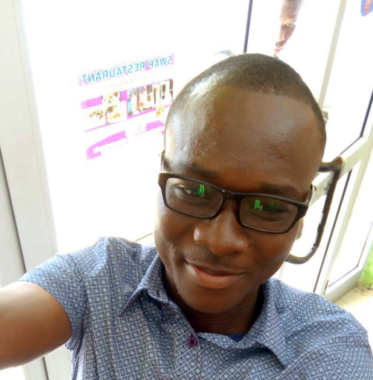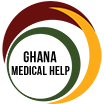
Ghana Medical Help’s oldest advocate and team member has certainly made a lasting impact during his seven years of service.
Dr. Dominic Akaateba, a young medical practitioner located in Ghana, has spilled his passion in providing deserving medical care for those in his home country. From brainstorming solutions in GMH’s infancy stages in 2010 to conducting data assessments for partner hospitals today, Dominic has seen every step along the path.
His official title is Director of Operations Ghana, but to paint a more vivid picture, Dr. Akaateba is the eyes, ears, hands, brain and heart of GMH in the field. Quite simply, without his input, none of all GMH has accomplished at our partner hospitals would be possible.
As of November 2016, Dr. Akaateba has a new title to hold in Ghana. This one being the Head Clinician of the Department of Public Health and Infectious Diseases at the Upper West Regional Hospital. Primarily his role is to take care of patients on a daily basis, especially in regards to infectious diseases that are common in Ghana.
“HIV/AIDS, Meningitis, Malaria, Rabies, or anything that has to do with infections will commonly pass through my ward,” said Dr. Akaateba.
To compound the important and also dangerous task of treating these diseases, Dr. Akaateba also collects data on each of his patients and the disease he or she had. The public health department in Ghana, he said, is trying to spearhead the threat of disease in rural areas as much as possible. As such, data reports on patients are sent regionally by Dr. Akaateba.
“Some patients are successfully treated and integrated back into their families and others, unfortunately, are not so lucky,” he said. “We report this data to the Public Health unit regionally and then it’s passed on to the national level, followed by the World Health Organization.”
“Most of these diseases are a threat to our area, Ghana, and the World Health Organization,” said Dr. Akaateba. “So we work very hard to keep data on these diseases. We take monthly record of all patients that come in and the result of their treatments.”
How to prevent these diseases from spreading? Dr. Akaateba is quick to note that education is without a doubt the biggest key.
“The biggest preventative measure is education. People in the middle class might not have to deal with these kinds of diseases because they know how to prevent them,” said Dr. Akaateba. So the biggest work is certainly public education for those who live in low economic areas.”
Dr. Dominic Akaateba holds his new position with pride, but not without remembering what the public health landscape used to be like in northern Ghana just a short time ago.
“Looking back now, I’m so proud to see where we have come as an organization. If you were to see what it used to be like, you would be shocked,” he said.


